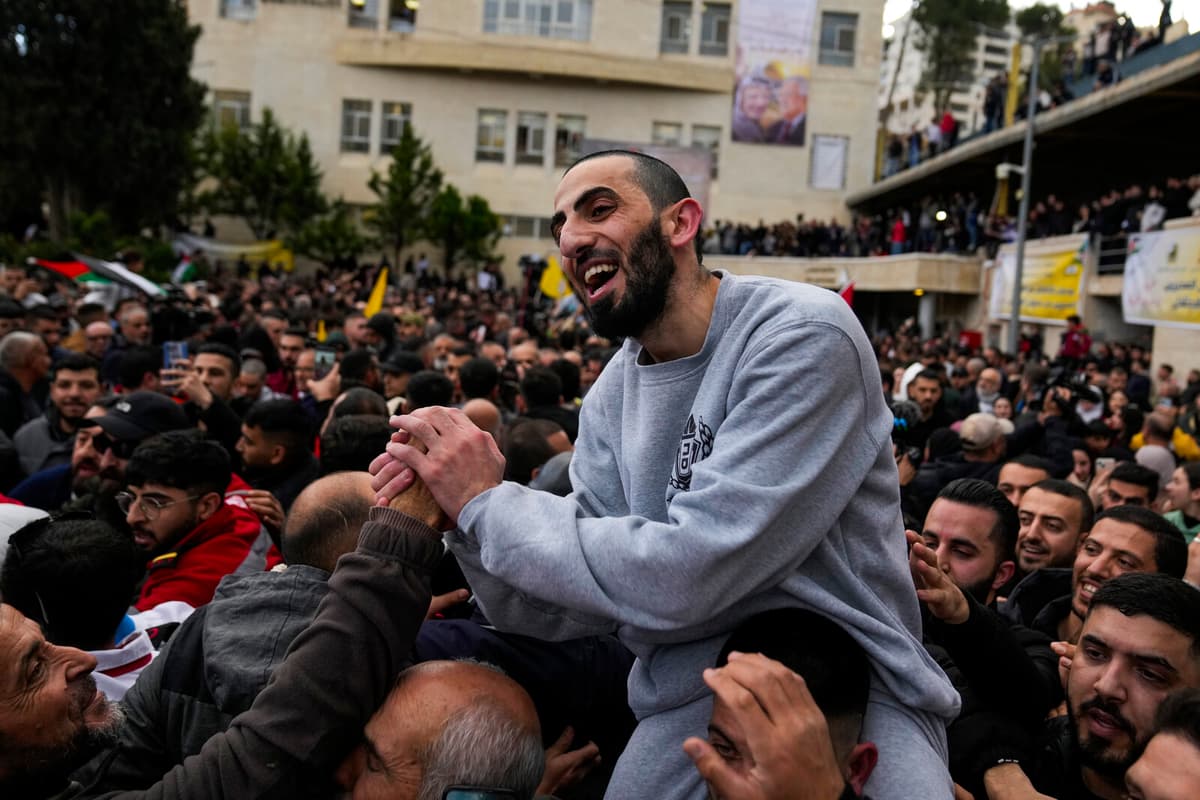On Saturday, 200 Palestinian prisoners and detainees held by Israel were released in exchange for four young women who were being held as hostages in Gaza.
In Ramallah, people cheered and waved victory banners as buses carrying some of the Palestinians arrived. The prisoners, wearing gray clothes, were lifted onto people's shoulders.
Many Palestinians have friends or relatives who have been arrested by Israeli authorities, accused of being part of deadly attacks, violent protests, or political activism. Many people see those held by Israel as political prisoners.
"My brothers"
They are my brothers, says Nour Ghiyatha, one of those welcoming the released.
I don't know them, but for us Palestinians, it's a central issue, the issue of prisoners, which they represent.
During the day, the crowd also erupted in Hamas-friendly chants, which may indicate dissatisfaction with the Palestinian Authority (PA) and the widespread support for the release of prisoners.
In Israeli Tel Aviv, people followed the live broadcast of the release of the hostages on massive screens, and hundreds were already in place early in the morning. Many of the people wore yellow t-shirts with the text "you are not alone" written in Hebrew.
"Almost fainted"
As soon as the four hostages appeared on the screen, cheers of joy erupted.
This feeling is fantastic, exaltation, tears, and joy, it's all at once, says Tel Aviv resident Sima Ben Naim.
It's not just joy, we're also crying, and I hope all of them will return.
Further celebrations broke out when Daniel Hagari, spokesperson for the Israeli military, announced that the women had arrived in Israel after being held for 477 days in Gaza.
I almost fainted, my husband had to hold me, I have no voice, says Hana Mamalia.






